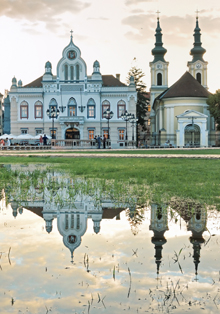Jesús González Mateos
Journalist / President of EditoRed
September marks the start of the last political year of the 2019-2024 European legislature. In June we will vote on the new European Parliament, but ahead of us lie eight months of enormous intensity which, barring a surprise peace agreement, will continue to be marked by the war in Ukraine. In any case, the dossiers pending approval before the European elections are many and of great importance. The reform of fiscal rules, i.e. budgetary and spending control in the member states, especially in the euro economies, will be one of the great battle horses of the 27. The European electricity market must be reformed to lay the foundations for the EU’s energy sustainability. And, of course, we should not fail again to achieve an asylum and migration law, if we have the slightest dignity to stop the tragedy of human beings at our borders.
Unity with Ukraine
There is no doubt that the war in Ukraine is entering an entrenched process with neither winners nor losers. As things stand, the most important question in this final stretch of the parliamentary term will be whether the EU-27 remain united as they have so far in their unconditional economic and military support for Zelensky’s government. The conflict is having serious effects on many EU economies and some European capitals are beginning to question the sense of this war and the need for a negotiated peace. One of the main consequences of the conflict is the EU’s energy price and supply problems in what will be the second winter of the conflict. Hence, one of the basic dossiers to be approved is the reform of the European electricity market. Also as a result of Putin’s invasion, the EU has changed its geopolitical priorities and has turned its gaze to Latin America, where the agreement with Mercosur, despite the difficulties that have persisted for a decade in signing it, will be an achievement to pursue.
New fiscal rules
The economic situation in the main Member States is close to recession or at least stagnation. Growth rates remain very low and, although inflation is gradually beginning to be contained, it is being held back by the gradual rise in interest rates, which, overall, is leading to a loss of purchasing power for the European middle classes. As things stand, this autumn the new fiscal rules will have to be set in the budgets of the countries. It is likely that in four or, exceptionally, seven years’ time, we will once again be obliged to have a public deficit below 3% and a debt of less than 60% of GDP, something that now seems impossible to achieve and which will force severe cuts in investment and public spending. And, furthermore, it will be necessary to reach a consensus on whether these rules should be applied as they have been until now, with coffee for all, or in a personalised manner, taking into account the situation of each country, as proposed by the European Commission.
The asylum and migration pact
But, without a doubt, the most important underlying issue to be discussed in the EU in the coming months is that of migration. Europe is ageing and demographically increasingly irrelevant in the world, but paradoxically it is unable to establish a policy for receiving migrants on our territory. Moreover, we define ourselves as the world’s great reservoir of respect for human rights and freedoms, while corpses of defenceless beings are piling up on our seas and land borders. This absolute incoherence has been undermining the pillars and principles of our democracies for decades. So much so that it is one of the main arguments used by ultra-nationalist political formations to criticise the EU. A European society that is increasingly defensive, increasingly unwilling to make sacrifices and show solidarity with those fleeing the tragedy of hunger or war, is a community in danger of decomposition. If we are not able to face the future with courage, Europe will be the museum of old cultural relics that all our enemies, who do despise democracy, would like to turn us into.
© This article was originally published in Aquí Europa / All rights reserved.






